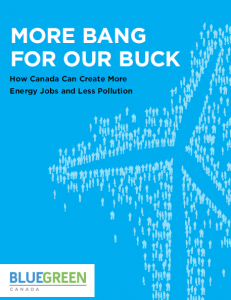Commentary by Keith Helmuth, Woodstock Sustainable Energy Group
Telegraph Journal, 18 March 2016
What kind of economy will New Brunswick have in the new energy future? A renewable energy platform is clearly coming and new energy platforms create new economies. The extraction and refining of hydrocarbons launched a new energy platform, which has created the modern economy and its many benefits. However, the growth of the hydrocarbon economy has now developed to such a scale that it has burst through the safe operating limits of earth’s geochemical and ecological boundaries, with increasingly negative effects. This is an unwelcome thought. We used to think that hydrocarbon energy paved the road to a better life. Up to a point, this idea made sense, but a threshold of reversal has been crossed.
Crossing this threshold means that, from a certain point on, the negative effects of burning hydrocarbons will be greater than the benefits. The danger of these negative effects is now so serious that it has brought almost all national governments on earth into agreement on reducing and limiting carbon emissions.
The message from the Paris climate agreement is clear: the energy platform of the economy must shift from reliance on carbon releasing fuels to a diversity of non-carbon emitting, renewable energy sources.
Fortunately, renewable energy innovators have been at bat, and it now looks like the most important public policy question is how fast this transition can be made without upsetting the apple cart of the economy.
In N.B., we are fortunate that the government has recently announced an excellent program to facilitate this transition — Locally-Owned Renewable Energy that is Small Scale (LORESS). It’s a small start, but it’s heading in the right direction.
This transition is enormously attractive. We have the tools, materials, and knowledge to create a clean, rapidly growing, and sustainable energy platform. And the clincher is this: the renewable energy platform has the potential to help create a regenerative economy that builds up steady-state prosperity.
What might this mean for N.B.?
Currently, the government seems to have one foot firmly on the hydrocarbon dock and the other stepping gingerly into the renewable energy boat. Will government grasp the economic potential of renewable energy and get fully on board?
What comes after the last use of the Energy East pipeline (if built)? What comes after fracked-out shale gas wells (if drilled)? When these projects have faded, and the jobs they created have vanished, what will they have contributed to a sustainable, self-regenerating economy?
The renewable energy industry, on the other hand, is creating a fast growing sector of sustainable, community-based employment.
Statistical analysis shows that for every $1 million invested in the oil and gas industry two jobs are created. For every $1 million invested in renewable energy 15 jobs are created. For every $1 million invested in upgrading the energy efficiency of buildings 14 jobs are created. (See www.bluegreencanada.ca/more-bang-for-our-buck )
 One of the key factors about the shift to renewable energy is that it triggers a new way of thinking about security and prosperity. It shifts thinking about the economy from the extraction of resources to the cultivation and regenerating of resources.
One of the key factors about the shift to renewable energy is that it triggers a new way of thinking about security and prosperity. It shifts thinking about the economy from the extraction of resources to the cultivation and regenerating of resources.
For example, policies that support the expansion of local food production and marketing will help build up a regenerative economy. Can we imagine a N.B. that produces at least 50 per cent of the food it needs?
Likewise, policies for woodlot and Crown land management that improve biodiversity and insure the longterm harvesting of high quality timber would move the forest industry from extraction to regeneration, and help build up a steady-state prosperity for forest-based livelihoods.
Will government catch the opportunity to facilitate a regenerative economy? This depends on whether the smart, renewable energy platform is placed at the centre of the province’s economic development future.
Keith Helmuth is a member of the Woodstock Sustainable Energy Group

